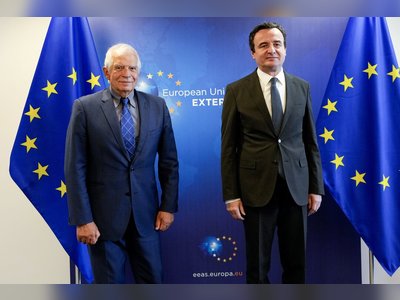Germany Shifts Stance on Nuclear Energy, May Signal Major EU Policy Change
Hungary's government welcomes Germany's decision to support nuclear initiatives within the EU after years of opposition.
Germany has announced a significant policy shift regarding nuclear energy, with political director Baláš Orban of Hungary's Prime Minister confirming via social media that Germany will no longer oppose nuclear proposals within the European Union.
This move is seen as a pivotal turn in Germany's energy policy, which has long been dominated by anti-nuclear sentiment.
Orban heralded the announcement as 'a historic turnaround,' emphasizing the potential benefits of this shift for advocates of reliable, affordable, and sustainable energy solutions.
He noted that Germany's previous stance had been a source of contention, particularly following the Fukushima disaster in 2011, which prompted the German government to decide on the phase-out of nuclear power plants.
Historically, Germany's decisions in energy policy have had ripple effects across Europe, often influencing other member states' policies.
Orban remarked on this legacy, indicating that Hungary had suffered from the 'anti-nuclear fanaticism' that characterized Germany's earlier position.
In addition to the nuclear energy policy change, Orban addressed concerns surrounding migration, referencing the previous 'Willkommenskultur' approach under Angela Merkel's leadership, which saw Germany adopt an open-door policy toward mass migration.
He suggested that this policy had led to significant challenges in integration and public discontent over illegal immigration, implicating broader societal impacts in Germany.
Orban urged the new German administration to adopt a rational approach moving forward, advocating for the consideration of Hungarian solutions to various issues, including migration, peace initiatives, and Ukraine's potential EU membership.
He emphasized the importance of avoiding unnecessary policy reversals and mistakes, positing that earlier recognition of Hungarian perspectives could have saved considerable time and resources for both nations.
This move is seen as a pivotal turn in Germany's energy policy, which has long been dominated by anti-nuclear sentiment.
Orban heralded the announcement as 'a historic turnaround,' emphasizing the potential benefits of this shift for advocates of reliable, affordable, and sustainable energy solutions.
He noted that Germany's previous stance had been a source of contention, particularly following the Fukushima disaster in 2011, which prompted the German government to decide on the phase-out of nuclear power plants.
Historically, Germany's decisions in energy policy have had ripple effects across Europe, often influencing other member states' policies.
Orban remarked on this legacy, indicating that Hungary had suffered from the 'anti-nuclear fanaticism' that characterized Germany's earlier position.
In addition to the nuclear energy policy change, Orban addressed concerns surrounding migration, referencing the previous 'Willkommenskultur' approach under Angela Merkel's leadership, which saw Germany adopt an open-door policy toward mass migration.
He suggested that this policy had led to significant challenges in integration and public discontent over illegal immigration, implicating broader societal impacts in Germany.
Orban urged the new German administration to adopt a rational approach moving forward, advocating for the consideration of Hungarian solutions to various issues, including migration, peace initiatives, and Ukraine's potential EU membership.
He emphasized the importance of avoiding unnecessary policy reversals and mistakes, positing that earlier recognition of Hungarian perspectives could have saved considerable time and resources for both nations.
AI Disclaimer: An advanced artificial intelligence (AI) system generated the content of this page on its own. This innovative technology conducts extensive research from a variety of reliable sources, performs rigorous fact-checking and verification, cleans up and balances biased or manipulated content, and presents a minimal factual summary that is just enough yet essential for you to function as an informed and educated citizen. Please keep in mind, however, that this system is an evolving technology, and as a result, the article may contain accidental inaccuracies or errors. We urge you to help us improve our site by reporting any inaccuracies you find using the "Contact Us" link at the bottom of this page. Your helpful feedback helps us improve our system and deliver more precise content. When you find an article of interest here, please look for the full and extensive coverage of this topic in traditional news sources, as they are written by professional journalists that we try to support, not replace. We appreciate your understanding and assistance.










